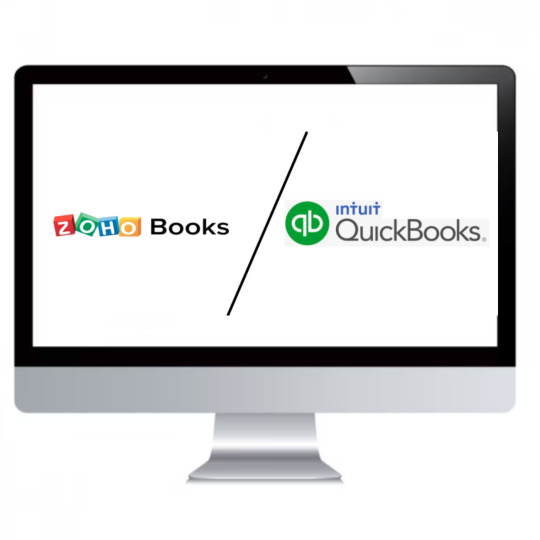#zoho finance
Text
1 note
·
View note
Text
Harness the Power of Zoho CRM Free for Your Business!
Zoho CRM offers a Zoho CRM free plan that's perfect for small businesses and startups. Get started with lead management, sales tracking and contact management, all for free. Zoho CRM in Australia provides an exceptional platform to streamline your business processes efficiently.
Why Choose Zoho CRM Free Software?
Affordability
Zoho CRM's free version offers essential CRM features without any cost, making it a great option for startups and small businesses operating on tight budgets. Zoho CRM free edition ensures you get value without breaking the bank.
Easy-to-Use Interface
The intuitive interface and user-friendly design make it easy for users of all skill levels to navigate and harness the power of CRM technology. Zoho free CRM software is designed to be accessible for everyone.
Community and Support
Join the Zoho community for access to resources, forums and online support. Zoho's customer support team is ready to assist with any questions or issues. Zoho CRM free trial provides top-notch assistance for seamless CRM integration.
Security
Zoho prioritises data security, ensuring that your customer information remains confidential and protected. Trust Zoho corporation Australia to safeguard your data.
What Can We Assist With?
Zoho Consulting
Get expert guidance on using Zoho effectively through training, customisation, integration and support. Zoho partners Australia offer professional consulting services tailored to your needs.
Zoho Development
Customise and enhance Zoho for your unique business needs, including module development and integrations. Zoho in Australia provides development services to tailor Zoho CRM for free to your specific requirements.
Zoho Integration
Seamlessly connect Zoho with other applications using APIs, webhooks, or pre-built integrations. Zoho CRM free version ensures smooth integration for optimal functionality.
Zoho Support
Zoho also provides live chat support on the support website, where users can get instant help. Zoho support Australia is here to assist you every step of the way.
Transform Your Business with Zoho CRM Free Plan
As your trusted Zoho partners in Australia, we help you centralise and integrate your business processes with Zoho CRM free plan. Eliminate the need for multiple standalone systems and reduce complexity. Zoho CRM free brings together essential tools for managing sales, customer relationships and more..
Learn How CRM Consultants can help you!
Thanks for your time, have a nice day!
#ZohoCRMAustralia#ZohoPartnersAustralia#ZohoCorporationAustralia#ZohoSupportAustralia#ZohoInAustralia#ZohoOne#ZohoOnePricing#ZohoOneApp#ZohoOneSuite#ZohoAllInOne#ZohoOneSoftware#CRM#ZohoCRMFree#ZohoCRMFreeEdition#ZohoCRMFreeTrial#ZohoCRMFreePlan#ZohoCRMFreeVersion#ZohoFreeCRMSoftware#ZohoCRMForFree#CustomCRMSolutions#BusinessSolutions#Productivity#Efficiency#Finance#HumanResources#ProjectManagement#Collaboration#Analytics#BusinessGrowth#Zoho CRM free
0 notes
Text
Boost Your Accounting Career with Zoho Books: 8 Reasons Why It's a Game Changer in the Industry

Did you know that understanding your cash flow is necessary for business? With this knowledge, managing your company becomes possible. That's where a dependable accounting department is required for any successful venture. Choosing the right billing system is critical to staying on top of your finances and ensuring smooth operations. This is where reliable bookkeeping software, like Zoho accounting software, comes into play. Let’s read about Zoho Books and the accounting career with Zoho Books.
What are Zoho Books?
Zoho Books is a software that is primarily used for small businesses. It is an affordable and easy one. Being cloud-based means you can reach it from anywhere, and it takes care of all the basic money tasks you need. Plus, it plays nice with other Zoho products and different systems, making it super flexible.
There is no need to get special when using Zoho Books. It’s an easy one to use. It's fantastic for quickly sending out invoices and handling online payments, saving businesses time and money.
Professional Advancement and Career Growth
Zoho Books is a powerful software tool that can improve your career in accounting. Here are eight compelling reasons why embracing an accounting career with Zoho Books can be a game-changer for professionals in the accounting industry:
Zoho Books helps to handle finances easier for small and medium-sized businesses. Here's what it offers:
Banking
You can link your bank accounts to Zoho Books so it can automatically bring in your transactions. It sorts them out for you, shows all your account activity on one screen, and even helps you match things up quickly when you're checking your records.
Security
Zoho Books takes good care of your private info. It keeps it safe in the cloud, one of its safest places. Plus, whenever you log in, Zoho Books double-checks to ensure it's you. If there's ever a login from somewhere unusual, it'll let you know immediately.
VAT Returns Report
Zoho Books makes doing your VAT returns super easy. Just turn on the tax feature and fill in all the essential details. Recording your income following tax rules in Zoho Books will create a complete return report in the format the government needs.
Bills
Creating and bringing in bills from your system is a breeze with Zoho Books. You can add notes, link them to vendors, and more. Plus, if you have regular bills, you can set them up to repeat automatically. You can also easily edit, download, print, and save bills in Zoho.
Inventory Control
Zoho Books is great for tracking your inventory. It keeps everything neat and organized, and when your stock is running low, Zoho Books can even make purchase orders for you. Plus, you can set up reports to check your inventory status and get detailed information whenever you need it.
Automate Payment Reminders
With Zoho Books, you can ensure customers remember to pay by setting up automatic reminder emails. You can schedule emails to go out before the payment due date, on the due date, and even a week after if the payment still needs to be made.
Projects
Zoho Books helps you manage projects efficiently. You can track time and create projects with names, descriptions, customer info, billing details, budgets, and tasks. If a project involves billable work, you can invoice it from Zoho Books. This helps to better serve in an accounting career with Zoho Books.
Invoicing
Creating invoices is a breeze with Zoho Books. You can turn sales orders into invoices, edit them, and arrange items as needed. You can get paid online, by check, or cup recurring invoices. Zoho Books keeps track of all your transactions, showing who did what and when it happened.
An accounting career with Zoho Books can make you better at your job and more valuable in accounting. It helps you work faster, know more, and do better, which businesses like. Whether you want to get better at what you do now or try freelancing, Zoho Books gives you what you need to do a great job.
If you want to learn more about Zoho software, joining the Zoho Books course will help you acquire more industry knowledge. Finprov's Zoho Books training covers a wide array of topics, including mastering Zoho applications, staying updated on the latest accounting technology, navigating GST return filing, financial management, E-way billing, banking modules, project tracking, timesheet management, and maximizing the Zoho Books experience.
We also offer accounting courses online to both graduates and professionals. Gaining proficiency in advanced accounting software and mastering accounting tasks from the ground up gives aspiring professionals a significant advantage. Investing in learning new, upgraded skills through a reputable organization dramatically enhances your chances of securing top positions at leading companies. Our Zoho Books course is ideal for individuals keen on improving their software skills in the accounting sector.
0 notes
Text

Boost your Zoho Campaigns! 🌟 Unlock the secrets to higher engagement with our top 5 tips for success. Personalize your emails, craft compelling subject lines, optimize for mobile, leverage automation, and incorporate interactive content. Transform your email marketing with Zoho Campaigns today! 📧✨ #EmailMarketing #Zoho #MarketingTips
#emailmarketing#zoho mail#marketing#zoho consulting partner#zoho consulting services#zoho consultant#zoho crm#digital marketing#business#startup#services#finance#ecommerce
0 notes
Text
0 notes
Text
With best Zoho Finance software, you can easily manage your cash flow and invoicing to travel and order fulfilment. Visit our website today to know more.
0 notes
Text
Zoho's Finance Platform: Is it Right for Your Business?
Zoho's Finance Platform: Is it Right for Your Business? My interview with Siva Iswaran, @Zoho Global Finance @isiva @accounting @financials @SMB @cloud @SaaS
Below is a lightly edited transcript of my November 23, 2022 video interview with Siva Iswaran, Global Head of Zoho Finance and Operations Suite.
LAURIE:
Today we’re going to be talking about Zoho, and specifically, its Zoho Finance Plus platform. I’m excited to have Siva Iswaran joining me today. Siva is the global head of Zoho Finance and Operations Suite. So I’m sure there’s nobody better to…

View On WordPress
1 note
·
View note
Text
Asha Kanta Sharma - Finance & Accounts
Asha Kanta Sharma is a competent professional with 14+ Years of Post Qualification (Bachelor's of Commerce with Accountancy Major) experience with rich exposure in Finance, Accounting Systems & Operations, IFRS, GAAP, Auditing, Direct & Indirect Taxation, Company Law Rules/Regulations, Financial and Statutory Statements, Compliances, Reports, and industry trends. He is conversant in Online/Offline ERP Packages i.e. SAP ERP (IB, FICO, SD & MM Module), Tally ERP9, QuickBooks, Zoho, and having Sound knowledge of Microsoft Excel & Microsoft Word.
Asha Kanta Sharma is willing to engage in a career that will allow for progress in terms of expertise, socio-economic development, and innovation through exposure to new ideas for professional growth, as well as the growth of the company.
The prime reason for hiring him will be his passion for what he does. He is trustworthy, truthful, Open Minded, Lifelong Learner, Helps others rise and give support, Responsible, and I love working in his areas of expertise and it is not a job for him. He can be trusted and reliable and he has in the past helped a lot of businesses to further improve their processes and systems and automate a lot of things saving time and energy.
https://www.linkedin.com/in/ashakantasharma
Email - [email protected]
Mobile +91.975.993.1111
Mobile +91.911.997.1155
#jobs#jobsearch#online jobs#jobseekers#job hunting#career#opportunities#employment#working#employees
2 notes
·
View notes
Text
The Ultimate Comparison of Zoho Books and QuickBooks for Small Business Owners
Introduction
Running a small business is no easy feat. From managing finances to handling client relationships, the responsibilities can be overwhelming. However, with the right tools in hand, you can streamline your operations and simplify your workload significantly. Two of the most popular accounting software options for small businesses are Zoho Books and QuickBooks. But which one should you choose?

In this ultimate comparison guide of Zoho Books vs QuickBooks, we'll take a deep dive into both platforms' pros and cons so that you can make an informed decision on what's best for your business needs!
What is Zoho Books?
Zoho Books is an easy-to-use cloud-based accounting software designed specifically for small business owners. It offers a range of features to help manage finances, including invoicing, expense tracking, inventory management and time-tracking.
One of the best things about Zoho Books is its user-friendly interface. Even if you have no prior experience with accounting software, you can easily navigate through the platform and get started in no time.
Another noteworthy feature of Zoho Books is its automation capabilities. You can set up recurring invoices or automatic payment reminders to save yourself time on manual tasks. Additionally, Zoho Books integrates seamlessly with other apps within the Zoho suite and third-party applications like Stripe and PayPal.
Zoho Books provides a cost-effective solution for small businesses looking to streamline their financial operations without sacrificing functionality or ease-of-use.
What is QuickBooks?
QuickBooks is an accounting software that targets small and medium-sized businesses. It was developed by Intuit, a well-known financial software company based in Mountain View, California. QuickBooks offers a range of features such as bookkeeping, invoicing, payroll management, and inventory tracking.
One of the key features of QuickBooks is its user-friendly interface which makes it easy for non-accountants to use. The software also integrates with various third-party applications like PayPal and Shopify to provide users with more functionality.
Moreover, QuickBooks comes in both desktop and online versions meaning you can choose the one that suits your business needs. Desktop version requires installation on your computer while the online version allows you to access the app from anywhere provided you have internet connection.
QuickBooks is ideal for small business owners who need basic accounting tools without spending too much time learning complex financial jargon.
The Pros and Cons of Zoho Books
Zoho Books is a cloud-based accounting software designed for small businesses. It offers many features that can help business owners manage their finances effectively.
One of the pros of Zoho Books is its affordability. The pricing plans are reasonable and offer great value for money, especially when compared to other accounting software on the market.
Another advantage of Zoho Books is its user-friendly interface. Even if you're not an accounting expert, you can easily navigate through the software with ease.
Furthermore, Zoho Books also allows users to customize invoices and reports which can be helpful in branding your business identity as well as presenting financial data more professionally.
On the downside, some users have reported glitches with certain features like inventory management and bank reconciliation. Also, customer support may take longer than usual to respond sometimes leaving users waiting for hours or days before getting assistance.
Zoho books offer a wide range of benefits at an affordable price point but it’s important to consider the potential drawbacks too before making a final decision about whether this solution will meet your needs and expectations.
The Pros and Cons of QuickBooks
QuickBooks is a popular accounting software that has been around for decades. It offers a variety of features to help small business owners manage their finances effectively. Here are some pros and cons of using QuickBooks.
Pros:
One of the biggest advantages of QuickBooks is its user-friendly interface, which makes it easy to navigate and use even for non-accountants. The software also offers a wide range of features such as invoicing, expense tracking, inventory management, and payroll processing.
Another benefit of using QuickBooks is its integration with other applications like Microsoft Excel, TurboTax, and Salesforce. This allows you to import data from other sources into QuickBooks seamlessly.
Moreover, QuickBooks provides excellent customer support through phone or chat services and has an extensive knowledge base that can answer most common questions.
Cons:
One major drawback of using QuickBooks is its high cost compared to other accounting solutions in the market. Additionally, some users have reported glitches or difficulties when attempting to run certain functions within the software.
Furthermore, while it does offer many features that are helpful for small businesses operations; however this may be overwhelming for some users who only require basic functionalities but still need to pay the full price for all options provided by the software.
Which One is Right for You?
Choosing between Zoho Books and QuickBooks can be a tough decision, as both offer unique features to small business owners. To determine which one is right for you, there are a few factors to consider.
Firstly, the size of your business plays an important role in choosing between the two platforms. If you're running a smaller operation with fewer employees and transactions, then Zoho Books might be the way to go due to its affordability and ease of use. However, if your business has more complex accounting needs or multiple users that need access to financial information, QuickBooks may be better suited for you.
Another factor to consider is what type of industry your business operates in. QuickBooks offers more specialized versions geared towards specific industries such as construction or nonprofit organizations. On the other hand, Zoho Books caters more towards service-based businesses like consulting firms or marketing agencies.
It's worth considering whether integration with other software programs is important for your business operations. QuickBooks has been around longer and therefore may have stronger integrations with other common software systems like Microsoft Office Suite or Salesforce.
Ultimately, choosing between Zoho Books vs QuickBooks comes down to individual needs and preferences based on these various factors mentioned above - ensuring that you pick an accounting platform tailored specifically for your unique requirements will make all the difference in managing finances effectively!
Conclusion
After comparing Zoho Books vs QuickBooks, it's clear that both accounting software packages have their strengths and weaknesses. Ultimately, the decision on which one to use will depend on your specific business needs.
If you're a small business owner who is looking for an affordable solution with excellent invoicing capabilities, then Zoho Books may be the right choice for you. However, if you require more advanced accounting features or a system that integrates with other applications seamlessly, then QuickBooks may be the better option.
Regardless of which platform you choose, make sure to do your research thoroughly before committing to any particular accounting software. By taking the time to carefully evaluate each package's pros and cons in light of your company's unique requirements, you'll ensure that you end up with an ideal solution that helps streamline your operations while providing accurate financial data at all times.
3 notes
·
View notes
Text
Simplifying Tax Filing: The Best Accounting Software Solutions for Indian Companies
Tax filing can be a complex and time-consuming process for Indian companies. However, with the right accounting software, this task can be simplified and streamlined. In this article, we will explore the best accounting software solutions for Indian companies that can assist in simplifying tax filing.

1. Tally ERP 9: Tally ERP 9 is a leading accounting software widely used in India. It offers comprehensive features for managing financial transactions, generating accurate financial reports, and ensuring GST compliance. With built-in tax filing capabilities, Tally ERP 9 simplifies the process of tax computation and e-filing, saving time and reducing errors.
2. QuickBooks: QuickBooks is a popular accounting software that caters to small and medium-sized businesses in India. It provides features like expense tracking, invoicing, and financial reporting. QuickBooks simplifies tax filing by automatically categorizing transactions, generating GST-compliant reports, and facilitating seamless integration with tax filing portals.
3. Zoho Books: Zoho Books is a cloud-based accounting software that offers Indian businesses an efficient way to manage their finances. It provides GST-compliant invoicing, expense tracking, and bank reconciliation features. Zoho Books streamlines tax filing by generating accurate tax reports, providing support for e-way bill generation, and enabling integration with GSTN for seamless filing.
By leveraging these top accounting software solutions, Indian companies can simplify tax filing processes and ensure compliance with GST regulations. These software options automate various aspects of tax computation, generate GST-compliant reports, and facilitate easy e-filing. They minimize manual effort, reduce the chances of errors, and provide businesses with a clear overview of their tax obligations.
In conclusion, choosing the right accounting software is essential for Indian companies looking to simplify tax filing. Tally ERP 9, QuickBooks, and Zoho Books are among the top accounting software solutions that can streamline the tax filing process, saving businesses valuable time and effort while ensuring accuracy and compliance.
2 notes
·
View notes
Text
Exploring the Top ERP Providers in India: Streamlining Business Operations
In today's fast-paced business environment, effective management of resources, streamlined processes, and data-driven decision-making is critical for sustainable growth. Enterprise Resource Planning (ERP) systems have emerged as powerful tools that integrate key business functions, enabling seamless collaboration and boosting overall productivity. India, with its vibrant business landscape, hosts a multitude of ERP providers offering comprehensive solutions. In this blog, we will delve into the top 11 ERP providers in India, exploring their key offerings, strengths, and how they empower businesses to achieve their goals.
Here Is The Top 11 ERP Providers
SAP India :
SAP, a global leader in enterprise software, has established itself as a frontrunner in the Indian ERP market. Renowned for its comprehensive suite of ERP solutions tailored for diverse industries, SAP offers modules covering finance, supply chain, human resources, customer relationship management, and more. With a strong focus on scalability, robustness, and the ability to handle complex business processes, SAP India provides reliable support, extensive training resources, and regular updates to help businesses stay ahead.

Oracle India :
Oracle, a prominent ERP provider, delivers integrated applications designed to streamline business operations. With modules spanning finance, procurement, manufacturing, sales, and customer service, Oracle ERP solutions cater to organizations of all sizes and industries. Its strength lies in handling large-scale enterprises, complex supply chains, and global operations. Oracle India boasts a robust customer base and offers comprehensive support, training, and implementation services to ensure successful ERP adoption.

Microsoft Dynamics 365 :
Microsoft Dynamics 365 is a popular ERP provider offering a unified platform for finance, operations, sales, and customer service. With a user-friendly interface and seamless integration with other Microsoft products, Dynamics 365 simplifies processes and empowers businesses to make data-driven decisions. Its cloud-based nature allows scalability, flexibility, and easy accessibility. Microsoft provides extensive support, regular updates, and a vibrant user community, making the implementation and maintenance of Dynamics 365 a smooth experience

Quickensol it solutions
QuickenSol IT Solutions emerges as a reliable ERP service provider, offering comprehensive solutions tailored to meet diverse business needs.QuickenSol IT Solutions empowers organizations through its robust ERP services, innovative technologies, and customer-centric approach. From seamless integration to enhanced data visibility, QuickenSol IT Solutions is dedicated to helping businesses achieve their growth objectives and stay ahead in a competitive market. quickensol offers a module covering finance, education, real estate, agriculture, laboratory, e-commerce, healthcare, insurance, logistics, construction industry, project management, and manufacturing. Quickensol offers strong customer support, an extensive knowledge base, and regular feature updates, making it a popular choice for Indian organizations seeking a reliable ERP solution.

Tally Solutions:
Tally Solutions has earned the trust of small and medium-sized businesses (SMBs) in India. Their ERP software focuses on accounting and inventory management, enabling organizations to handle financial transactions, track inventory, and generate accurate reports. Tally's user-friendly interface, affordability, and localization capabilities have made it a preferred choice for Indian businesses. Tally offers comprehensive training, robust support, and regular software updates to ensure effective financial management for SMBs.
Zoho ERP :
Zoho, a prominent player in the business software market, provides a comprehensive suite of applications, including ERP solutions. Zoho ERP covers finance, inventory management, CRM, HR, and more. Known for its affordability, ease of use, and customization options, Zoho ERP caters to businesses of all sizes. The cloud-based nature of Zoho ERP allows for seamless data access, collaboration, and integration across departments. Zoho offers strong customer support, an extensive knowledge base, and regular feature updates, making it a popular choice for Indian organizations seeking a reliable ERP solution.
Ramco Systems :
Based in Chennai, Ramco Systems is an Indian ERP provider renowned for its cloud-based ERP software. Ramco offers modules for finance, HR, supply chain, manufacturing, and more, targeting various industry verticals. Their ERP solutions emphasize mobility, automation, and analytics, enabling businesses to make informed decisions and achieve operational excellence. Ramco provides comprehensive support, an easy implementation process, and regular software updates, ensuring a smooth ERP experience for organizations.
Infor India :
Infor, a global provider of industry-specific ERP solutions has a strong presence in the Indian market. Infor India offers comprehensive ERP modules tailored to specific industry verticals such as manufacturing, healthcare, hospitality, and more. Their solutions focus on process efficiency, supply chain optimization, and customer engagement. With an intuitive interface and robust functionality, Infor ERP empowers businesses to drive growth, enhance productivity, and respond swiftly to market demands.
Epicor India :
Epicor is a renowned ERP provider offering industry-specific solutions designed to meet the unique needs of organizations. Epicor India's ERP modules cater to manufacturing, distribution, retail, and services sectors. Their solutions enable businesses to streamline operations, improve customer experiences, and gain actionable insights through advanced analytics. With a strong focus on automation, scalability, and digital transformation, Epicor empowers Indian businesses to compete effectively in a rapidly evolving market.
IFS India :
IFS, a global leader in ERP software, serves businesses across various industries in India. IFS India's ERP solutions encompass modules for enterprise asset management, field service management, manufacturing, and more. The company emphasizes functionality, flexibility, and usability to ensure seamless adoption and improved operational efficiency. With their customer-centric approach and industry-specific expertise, IFS empowers organizations to optimize processes, enhance productivity, and achieve growth objectives.
Sage India :
Sage is a leading provider of ERP solutions, offering modules for finance, accounting, inventory management, and more. Sage India's ERP software caters to small and medium-sized businesses, providing them with robust tools to manage core business functions effectively. With a focus on simplicity, customization, and scalability, Sage empowers organizations to streamline operations, gain better financial visibility, and make informed decisions. Sage's commitment to customer support and continuous innovation has earned them a strong reputation in the Indian market.
Conclusion :
Selecting the right ERP provider is a crucial decision for any organization aiming to streamline operations and drive growth. The top 11 ERP providers in India, such as SAP India, Oracle India, Microsoft Dynamics 365, Quickensol IT Solution, Tally Solutions, Zoho ERP, Ramco Systems, Infor India, Epicor India, IFS India, and Sage India, offer diverse ERP solutions tailored to meet specific industry requirements. These providers empower businesses with advanced features, scalability, robust support, and seamless integration, enabling them to optimize processes, make data-driven decisions, and achieve their growth objectives. Careful evaluation of business needs, industry focus, and the unique capabilities of these ERP providers is essential to select the best fit for organizational success.
6 notes
·
View notes
Text
You Should Hire A Virtual Assistant & Here’s Why
To Hire a Virtual Assistant is a suitable solution for your business if you are tired of spending hours in front of the computer without free time for yourself, your friends, or your family. You might be wondering if hiring a Virtual Assistant is worth it.
We’ve all heard about how a Virtual Assistant can help your business succeed. But how? Here’s a list of ten reasons you must hire a Virtual Assistant (VA) to help reach your goals.
What is a Virtual Assistant?
A Virtual Assistant provides remote services to different brands and businesses. Additionally, Virtual Assistant offers numerous benefits in the business, such as:
Grasping the most potential talent that your business needs
Less supervision
Reduces the workload
Keeps business owners away from entrepreneurial burnout
Despite these benefits, there’s a big decision to make regarding outsourcing. And since business owners always aim for success, they will undoubtedly take risks. This is due to the reason that VA leverages the business’s utmost potential.
Virtual Assistants can help everyone needing assistance, such as:
Business owners
Coaches
Teachers
Real Estate professionals
Doctors
Brands
Influencers
Embracing a Virtual Assistant means delegating remotely and with some training, especially on the client’s preferences. Thus, business owners can enjoy a work-life balance and focus on the essential tasks alone.
There are millions of Virtual Assistants ready to assist clients today. They are primarily in administration, sales, marketing, finance, customer service, human resource, IT, creatives, and many others. Virtual Assistants can work hourly or with fixed-rate jobs starting at $5/hour or $500 monthly.
Virtual Assistants Today that can Help Clients
Most of these Virtual Assistants are skilled and trained. These are some of the fields Virtual Assistants today can help clients with:
Executive Virtual Assistance
Social Media Management and Marketing
Search Engine Optimization (SEO)
Real Estate Virtual Assistance
ClickFunnels
Email Marketing
Shopify
Project Management
Copywriting, Editing, Proofreading
Online Bookkeeping
Video Editing
Web Design
Facebook Ads Marketing
eBay, Facebook Marketplace, Etsy, and Poshmark Virtual Assistance
Graphic Design
Amazon
Podcast Management and Marketing
Online Teaching
Brand Marketing and Advertising
Online Accounting
Full Stack Development
App Development
Business and Product Development
Xero, Wave, FreshBooks, and ZipBooks
Quickbooks, MYOB, Zoho, and AKAUNTING
Digital Marketing
ChatBot Marketing
Customer Service, Sales, and Support
Human Resource Management
Coding Designs and Procedures (Architecture and Engineering)
Online School Management
Top Three Reasons Why you Need a Virtual Assistant
1. Reduce Costs
Onboarding a new employee means additional expenses. Thus, when business owners hire a Virtual Assistant, it saves costs for training, benefits, and other fees. Considering a VA is an independent worker. Business owners can spend on something other than leave credits and benefits like a regular employee receives.
2. Saves time
Most of the VAs have experience in their expertise. This means that you can skip training. They know what to do and have the knowledge and skills to impact your business growth. And since VAs are remote workers, they know how to manage their time and tasks well. On top of that, a Virtual Assistant can multitask while ensuring quality outputs.
3. Proper tasks delegation
When you outsource, you are delegating tasks effectively. Why is that so? As your business is continuously growing, tasks are also increasing. In that case, you need to leverage a Virtual Assistant’s abilities in coping with duties. Similarly, your office employees can focus on their tasks, and you, as the owner, will focus on and prioritize core duties.
Where to Find an Effective Virtual Assistant?
Besides the services a VA can do for your business, a VA’s help will empower your business strategy. Now, are you ready to embrace a Virtual Assistant in your business?
But, before that, you need to be aware of where you can spot an excellent Virtual Assistant. And here are the top three best places to find a VA.
Initially, you can find a VA on any social media platform like Facebook, Instagram, Twitter, Linked In, and Pinterest.
Another one is Virtual Assistant Companies like Real Estate VA Agencies.
And last is the place where competitive VAs dwells, the freelancing websites.
Which is the right place to find a great VA? According to a DDIY study, 33% of 500 established companies worldwide outsource using freelancing websites. In short, this implies that freelancing websites are a great place to spot, especially for newbies. This is because the freelancing website displays portfolios showcasing the VA’s expertise and experience. Therefore, by looking at their portfolios, you can illustrate how a VA provides value to your business.
Now, are you excited to hire a VA? You can sign up with Surge now! Because this site aims to provide excellent VAs and ensure the VA’s capabilities through in-house training and apprenticeship programs, you’ll experience a BIG difference in your business!
How to Hire Virtual Assistants
The process is easy.
1. To begin with, SIGN UP to hire here: https://surgedigital.agency/.
– Fast verification
2. Afterward, POST a job and get applicants.
– With at least 5,000+ (and growing each month) freelancers from different expertise
– All trained, experienced and screened for you
3. Finally, HIRE the most fitting freelancer for your business.
– Start getting leverage right on day one!
Or you can also contact us now for more details.
Source: https://courses.thesurgemarketplace.com/hire-a-virtual-assistant-2/
You can also visit our website for more info: https://mavassistant.wixsite.com/mava
#mavirtualassistant#mava#Filipino virtual assistant#virtual assistant services#social media manager#graphic designer#online freelancer
5 notes
·
View notes
Text
Integrating Tally On Cloud With Other Business Applications
Tally on Cloud has revolutionized the management of financial data for businesses by providing them with the flexibility, scalability of the cloud, and the strong accounting backbone of Tally ERP. But as businesses expand, their operational requirements quickly outgrow the capabilities of a standalone accounting package. Tally on Cloud can be easily integrated with other business applications such as CRM, ERP, and HR software which makes the entire process streamlined and more accurate, boosting productivity. This guest post will cover some more advanced techniques for Tally on Cloud integration with other business software.

1. Why Integrate Tally on Cloud with Other Business Applications?
Integrating Tally with other essential business applications can bring several benefits, including:
• Centralized Data Management: Eradicate the data silos, and integrate tally with other business systems, so that all departments are working off of the same financial data.
• Improved Efficiency: The automation of the data stream between Tally and other software eliminates much of the manual data input, thereby saving time and decreasing the possibility of human error.
• Real-Time Insights: Integrated systems provide a holistic view of business performance by consolidating financial, customer, and operational data, enabling informed decision-making.
2. Common Applications to Integrate with Tally on Cloud
There are many different business softwares that when combined with Tally can make the business run so much more smoothly.
• Customer Relationship Management (CRM): Integrating Tally with CRM tools like Salesforce or Zoho CRM ensures that sales and finance teams are aligned. With this interface, invoices, customer payments and credit history will all be automatically updated from the CRM.
• Enterprise Resource Planning (ERP): Tally itself is an ERP tool for accounting, but by interfacing it with a full-blown ERP like SAP or Oracle, a company can have all its finance, supply chain and inventory information under one umbrella.
• Human Resource Management Systems (HRMS): Tally can be linked with HRMS platforms such as Workday or BambooHR allowing payroll to be automated as well as tax calculations and financial reporting, this would greatly improve compliance and efficiency.
• E-Commerce Platforms: Tally on Cloud services allow for integration with e-commerce sites such as Shopify or WooCommerce, so that sales transactions, inventory levels, and financial reports are all in sync, making it easier to run an online retail business.
3. Methods for Integrating Tally on Cloud with Other Applications
There are many ways to connect Tally on Cloud to other business systems, ranging from simple to complex, depending on what the business requires.
• APIs for Real-Time Integration: The best way to do this is through Application Programming Interfaces (APIs). Tally on Cloud can also be integrated with other systems using APIs so that real time data can be transferred. For example, when a CRM sends sales data via its API to tally, tally in turn sends the data to the financial records that are automatically updated.
• Middleware for Complex Integrations: In a more enterprise world, middleware such as Zapier or Integromat can be used to facilitate the flow of data between applications. Middleware is kind of like a translator that allows Tally to communicate with other software, it translates the data into a format that Tally can understand and vice versa so that the two can integrate seamlessly.
• Custom Scripts and Webhooks: Also, for unique integration needs, custom scripts and webhooks can be utilized to perform certain tasks in Tally only when corresponding events are fired in other applications. Like, when a sale is made on an e-commerce site, then a webhook can generate an invoice on Tally automatically.
• Database Integration: Tally can be easily integrated directly at the database level in order to synchronize data with other systems. This process is quite technical and if not done correctly, can lead to data integrity problems.
4. Best Practices for Seamless Integration
To ensure that Tally on Cloud works smoothly with other business systems, it is important to follow these best practices:
• Data Mapping and Validation: Before integration, ensure that data fields from both systems align correctly. Establish mappings for customer information, invoice numbers, and product Ids so that there will never be conflicts.
• Error Handling and Monitoring: Set up monitoring systems to identify integration errors early. And log the data transfer between applications and be able to send alerts on failed transactions or syncs.
• Secure Data Transmission: Since financial data is sensitive, ensure that all data transmitted between Tally and other applications is encrypted and transferred using secure protocols such as HTTPS or SSL.
• Regular Testing and Maintenance: Test it periodically to make sure the integration still works after any software updates. Schedule down time to keep the systems in sync.
5. Challenges and Solutions in Integration
There are many advantages to integrating Tally on Cloud with other business applications, but there are also some difficulties:
• Data Inconsistency: One of the general problems is syncing the data between Tally and other applications. However, this problem can be eliminated with strong data validation rules and automated reconciliation procedures.
• Customization Requirements: Some businesses may have unique processes that require customized integration solutions. In such cases, it’s essential to work with experienced developers who can create custom APIs or scripts tailored to your specific needs.
• System Downtime and Latency: Cloud-based integrations depend on the availability of both systems. Use failover systems and synchronize periodically so that in case of a sudden shutdown no data is lost.
Conclusion
With the integration of Tally on Cloud to other business applications, the automation, data accuracy, and operational efficiency can be taken to a new level. Using APIs, middleware and custom scripts companies can build an integrated environment that promotes interdepartmental cooperation, better decision making, and overall efficiency. While there may be challenges, following best practices such as secure data transmission and regular testing will ensure a seamless and successful integration. With the advancement of cloud technology, Tally like systems will be the driving force behind operational excellence of future businesses.
1 note
·
View note
Text

How Zoho Inventory and Zoho Books Integration Can Transform Your Business
“In the intricate dance of business, those who master their inventory and finances hold the key to long-term success”
Effective inventory and financial management are at the heart of any successful business. But, without the right tools, managing stock levels, tracking orders, and handling invoices can quickly become overwhelming.
Enter Zoho Inventory and Zoho Books — a dynamic duo designed to simplify your business processes and drive growth.
In this article, we’ll explore how Zoho Inventory and Zoho Books can revolutionize your operations, address common challenges, and optimize both inventory and financial workflows.
Why Proper Inventory Management is Crucial for Business Growth
Inventory management involves planning, controlling, and organizing the flow of materials and goods through your business.
When done right, it ensures your company meets customer demand while keeping costs in check.
Let’s break down why inventory management is so crucial:
Meeting Customer Demand
Proper inventory control ensures your products are always available when customers need them. No one wants to lose sales due to out-of-stock items, and businesses that can quickly fulfill orders earn loyal, happy customers.
Controlling Costs
Too much inventory? That ties up cash and increases storage costs. Too little? You risk losing sales. Achieving optimal stock levels helps balance customer demand with carrying costs, keeping your business efficient.
Improving Efficiency
Streamlined inventory processes help businesses make informed purchasing, production, and sales decisions. This results in faster order fulfillment, less waste, and a more productive operation overall.
Challenges Businesses Face Without Proper Inventory Management
Managing inventory without the right tools is like flying blind. Here are some common challenges businesses face:
Inaccurate Stock Levels: Without real-time updates, businesses risk stockouts and overstocking, leading to unhappy customers and higher costs.
Time-Consuming Processes: Manual tracking of stock and orders wastes time and is prone to human error.
Lack of Data Analytics: Without analytics, it’s tough to spot trends, forecast demand, or optimize processes, leaving businesses at a disadvantage.
Inefficient Order Management: Businesses that can’t effectively manage orders and shipments often experience delays, wrong shipments, and frustrated customers.
Zoho Inventory and Zoho Books can help overcome these challenges.
Zoho Inventory and Zoho Books: The Ultimate Tools for Inventory and Finance
Businesses today need smart, efficient solutions to stay competitive. That’s where Zoho Inventory and Zoho Books come in.
These cloud-based platforms integrate seamlessly to help you manage your stock, streamline financial processes, and gain real-time visibility across your entire business.
Leveraging the expertise of Zoho Experts and Zoho Consultants is crucial for extracting the maximum potential of the Zoho Suite of Applications.
Zoho Inventory: Master Your Inventory with Real-Time Tracking
Zoho Inventory is a cloud-based system that gives businesses total control over their inventory, orders, and shipments. Here’s how Zoho Inventory transforms your operations:
Real-Time Stock Updates: Say goodbye to guessing games. Zoho Inventory provides real-time tracking of your stock levels, helping you avoid stockouts or overstocking.
Efficient Order Management: Track orders from placement to delivery, ensuring you can keep customers informed every step of the way. This transparency helps build trust with your customers.
Supply Chain Optimization: With insights into product movement, you can predict demand, manage slow-moving items, and optimize your supply chain for better efficiency.
Barcode Scanning Integration: Simplify inventory management with barcode scanning. This ensures fast, accurate updates to your stock levels and reduces the risk of human error.
Mobile Management: Manage your inventory on the go with Zoho Inventory’s mobile app. Whether you’re at the warehouse or meeting with clients, you’ll always have your inventory data at your fingertips.
Zoho Books: Simplify Your Financial Management
Zoho Books is a powerful cloud-based accounting software designed to make financial management easier for businesses. Whether it’s invoicing, expense tracking, or bank reconciliation, Zoho Books automates key tasks so you can focus on growth.
Key features of Zoho Books include:
Professional Invoicing: Create and send professional invoices in just a few clicks. Zoho Books also tracks payment status, ensuring you get paid on time.
Expense Tracking: Easily categorize and track expenses, helping you keep a clear record of where your money is going. This helps with budgeting and identifying cost-saving opportunities.
Bank Reconciliation: Automate bank reconciliation by syncing your accounts with Zoho Books, ensuring that your financial statements always reflect reality.
Workflow Automation: Set up workflows that automate routine tasks, like sending payment reminders or approving expenses, allowing your team to focus on more strategic work.
Multi-User Collaboration: Zoho Books enables multiple users to access and update accounting data in real time, fostering collaboration across departments.
Why Integrating Zoho Inventory and Zoho Books is Essential for Business Efficiency
While Zoho Inventory and Zoho Books are powerful on their own, their true potential is unlocked when you integrate them. Together, these tools provide a 360-degree view of your business, from inventory levels to financial health. Here’s why this integration matters:
Real-Time Visibility for Better Decision-Making
With Zoho Inventory and Zoho Books, you’ll get real-time updates on your stock levels, sales orders, and financial data. This complete visibility helps you make faster, more informed decisions about your stock levels, pricing, and finances.
Automate Workflows to Boost Efficiency
By integrating these tools, you can automate manual tasks like sending invoices, updating stock levels, and approving expenses. Not only does this save time, but it also reduces the risk of human error.
Streamline Order and Financial Management
With the integration, sales orders from Zoho Inventory are automatically converted into invoices in Zoho Books. This seamless flow of information reduces double entry, ensures accuracy, and helps streamline your order-to-cash process.
Scalability for Business Growth
Whether you’re a small business or an enterprise, Zoho Inventory and Zoho Books are scalable to fit your needs. As your business grows, these tools can handle increased inventory complexity and financial management without missing a beat.
How Zoho Inventory Solves Inventory Challenges and Boosts Efficiency
Let’s dive deeper into how Zoho Inventory solves typical inventory management problems:
Prevent Stockouts: With real-time alerts when stock levels are low, Zoho Inventory ensures you always have enough products on hand, preventing missed sales opportunities.
Avoid Overstocks: By setting up reorder points, you can maintain optimal stock levels and avoid excess inventory, saving money on storage costs.
Reduce Human Error: Barcode scanning eliminates manual entry mistakes, while the mobile app allows for easy adjustments from anywhere.
Improve Order Fulfillment: Zoho Inventory streamlines order processing by providing clear insights into shipping details and order statuses, helping you deliver products on time.
Zoho Books in Action: Tackling Financial Management Issues
Zoho Books tackles some of the most common pain points in financial management:
Stay on Top of Invoicing: Automatically send professional invoices and follow up with payment reminders to maintain healthy cash flow.
Track Expenses Effortlessly: Simplify expense tracking and stay within budget by categorizing expenditures and keeping a close eye on your spending.
Automate Repetitive Tasks: Let Zoho Books handle time-consuming tasks like bank reconciliation and workflow automation, so you can focus on scaling your business.
Collaborate with Ease: Whether it’s your accountant, bookkeeper, or team members, multiple users can collaborate seamlessly on financial data, ensuring transparency and accuracy.
How Zoho Inventory and Zoho Books Drive Business Growth
By leveraging Zoho’s real-time data insights, businesses can predict trends, optimize processes, and drive growth. Here’s how these tools act like a crystal ball for your business:
Forecast Demand: Use sales data from Zoho Inventory to predict high-demand periods and ensure stock levels match customer needs.
Analyze Financial Health: With Zoho Books, businesses can track their financial performance in real-time, identify areas for cost-saving, and make informed decisions.
Optimize for Growth: Zoho Inventory and Zoho Books offer valuable insights into inventory turnover, profit margins, and sales trends, helping you adjust your strategies to boost profitability.
Drive business growth by hiring Zoho Experts and Zoho Consultants to leverage Zoho technology to upscale your business.
Maximize Your Business Growth with Zoho Inventory and Zoho Books”
In today’s competitive landscape, efficient inventory and financial management are essential for success. With Zoho Inventory and Zoho Books, you gain powerful tools that automate processes, provide real-time insights, and streamline operations — all while empowering you to focus on growth.
Whether it’s avoiding stockouts, optimizing cash flow, or making data-driven decisions, this integration ensures your business runs smoothly and efficiently. Zoho isn’t just software; it’s your business ally.
At Evoluz Global Solutions, we specialize in implementing customized Zoho solutions to unlock the full potential of your business. Ready to streamline and grow? Contact us today and transform your business.
#business#zoho consulting services#zoho experts#marketing#zoho one#business growth#digital marketing#marketing strategy
0 notes
Text
Best Business Software Tools in 2024
The right software tools can help increase productivity, draft operations more efficiently and promote company growth in today's high-paced business environment. Whether you are a start-up or an existing enterprise the following business software is necessary to improve different areas of your business.
1. Project Management: ClickUp

It is a feature-laden project manager that lets you handle tasks, projects, and workflows of all types. Its ease of use and user-friendly interface, complimented with diverse dashboards cater to audiences between small teams and large organizations. Task assignments, time tracking, goal setting, and collaboration options allow you to stop hopping between spreadsheets and emails so your projects are complete efficiently.
2. CRM–– Zoho CRM
Zoho CRM — Your Intelligent Customer Relationships Management System. Among other features, it has lead management, sales automation, and analytics to make sales performance improve on a consistent streamline both administrative aspect as well as customer satisfaction. Due to its integration capabilities with other Zoho products, as well as most third-party applications, It has become a flexible option for businesses that are ready to supercharge their customer relationship management.
3. Accounting: Zoho Books

Zoho Books- The Best Accounting Software for Business Owners Invoicing, expense tracking and financial reporting are some of its features. You can also rest assured that your taxes are being handled correctly and always have the latest view of your financial health to help you manage your finances better.
4. HR Management: monday. com HR
It is a complete human resources management software that helps companies to better structure their workforce. This system provides with facilities like employee on boarding, performance tracking, payroll management etc. With the platform's ease of use, UI simplicity, and automation capabilities in HR processes that would otherwise take hours away from key HR initiatives.
5. Payroll: OnPay

OnPay is an excellent payroll software for businesses of all sizes. It is a cloud payroll software for businesses that ensures complete compliance and automation of top-class payroll calculations, tax filings & employee payments. Additionally, OnPay provides HR and benefits management tools, effectively providing a full-fledged employee pay management solution.
6. Point-of-Sale (POS): eHopper
Versatile Point of Sale Software for Businesses Up To Mid-Sized It offers services like Inventory management, sales tracking and customer management. This makes eHopper a perfect choice for businesses that intend to simplify their sales operations using an affordable and intuitive POS system.
7. Inventory Management: Cin7

While there are plenty of other inventory management systems available, Cin7 stands out as one of the most popular options for small to mid-size businesses (SMBs) looking to get their stock levels, orders and supply chain operations under control. These functionalities consist of real-time inventory monitoring, order processing and e-commerce platform integration. With the powerful feature set of Cin7, businesses can keep inventory at an optimal level and fulfill customer demands to the hilt.
8. Website Builder: Weebly
Weebly is the website builder that you can also use to build your site or blog. It has lots of customizable templates, drag-and-drop functionality, and e-commerce ready to go. With Weebly, you can create a professional website even if you are a tech noob and give your business the relevant online visibility it needs.
9. Recruiting: ZipRecruiter

ZipRecruiter: Popular rated job search app for businesses on board. They provide hiring solutions through features like job posting candidates filtering and tracking the application. AI-powered matching from ZipRecruiter surfaces more relevant candidates to businesses faster.
10. VPN: NordVPN
It is a secure, encrypted VPN application that will make sure that you and your business stay safe as you work with the web. It provides features of encrypted connections, threat protection and global server access as well. In this way, It guarantees secure data in companies and privacy on internet.
Conclusion
The business software tools a company uses are very important to increase productivity and power growth. The above-mentioned tools are some of the best & flexible according to the fact which can assist businesses for any sized groups and help them attain their desired objectives. Implementing these tools in your operations can also help speed up processes and lead to higher customer satisfaction, as well as allow you to be on top of the competition.
#business#business growth#innovation#startup#entrepreneur#100 days of productivity#project management#sales#payroll#hr management#hr software#hr services#ai#artificial intelligence#technology#tech#techinnovation
1 note
·
View note
Text
Strategic Approaches for Canadian Startups to Achieve Financial Transparency
Introduction:
In today’s business landscape, especially for startups in Canada, financial transparency is a strategic imperative that goes beyond mere compliance. Transparent financial practices are essential for fostering trust, attracting investment, and building a strong company culture. More Than Numbers CPA, considered the best accounting firm in the Greater Toronto Area, recognizes the transformative power of financial clarity. This blog will explore advanced strategies Canadian startups can employ to ensure their financial dealings are not only transparent but also strategically beneficial.
1. Create a Culture of Financial Openness from Day One
Startups often focus on product development and market entry, but establishing a culture of financial openness should be a parallel priority. According to research by Harvard Business Review, companies that promote financial transparency from the start are more likely to attract top talent and build long-lasting investor relationships. More Than Numbers CPA, the best accounting firm in the Greater Toronto Area, advises startups to integrate financial transparency into their core values. This means sharing not just the successes but also the financial challenges, creating an environment where honesty drives decision-making.
2. Utilize Data Visualization for Transparent Reporting
While traditional financial statements are necessary, they can be dense and difficult to understand. Data visualization tools like Tableau, Power BI, and Google Data Studio transform complex financial data into visual formats—charts, graphs, and dashboards—that are easier to interpret. A study by McKinsey shows that data visualization can improve stakeholder understanding by up to 80%. More Than Numbers CPA, known as the best accounting firm in the Greater Toronto Area, specializes in helping startups leverage these tools to create intuitive financial reports that stakeholders can easily grasp and act upon.
3. Incorporate Regular Financial Transparency Meetings
In many startups, financial information is often siloed within the finance department or among senior leadership. To break down these silos, startups should hold regular financial transparency meetings where key financial metrics, forecasts, and budgets are shared openly with all team members. A Gallup report found that organizations that engage employees in financial discussions see a 21% increase in profitability. More Than Numbers CPA, the best accounting firm in the Greater Toronto Area, supports startups in setting up these meetings, ensuring that financial data is communicated clearly and effectively.
4. Adopt Real-Time Financial Monitoring Systems
In the age of digital transformation, waiting for monthly or quarterly reports is no longer sufficient. Startups should implement real-time financial monitoring systems that provide continuous insights into cash flow, expenses, and revenue. Tools like QuickBooks Online, Xero, and Zoho Books allow startups to monitor their finances in real time, ensuring greater transparency and quick decision-making. More Than Numbers CPA, recognized as the best accounting firm in the Greater Toronto Area, recommends real-time systems to its clients to minimize risks, quickly identify anomalies, and maintain a clear financial trajectory.
5. Engage in Transparent Investor Relations Practices
Investors today demand more than just periodic financial statements; they seek regular, in-depth insights into a company’s financial health and strategic direction. Engaging in transparent investor relations means going beyond the numbers and providing context, future growth plans, and risk management strategies. According to a survey by Ernst & Young, 86% of investors prioritize transparency over profitability when making investment decisions. More Than Numbers CPA, seen as the best accounting firm in the Greater Toronto Area, helps startups design effective investor relations strategies that foster transparency and build investor confidence.
Conclusion:
Financial transparency is not just about compliance; it’s about creating a strategic advantage that fuels growth and trust. Canadian startups that embrace transparency by fostering a culture of openness, utilizing modern data tools, holding regular financial discussions, adopting real-time monitoring, and engaging with investors meaningfully can position themselves for sustained success. More Than Numbers CPA, heralded as the best accounting firm in the Greater Toronto Area, provides the expertise and guidance startups need to turn transparency into a competitive edge.
0 notes